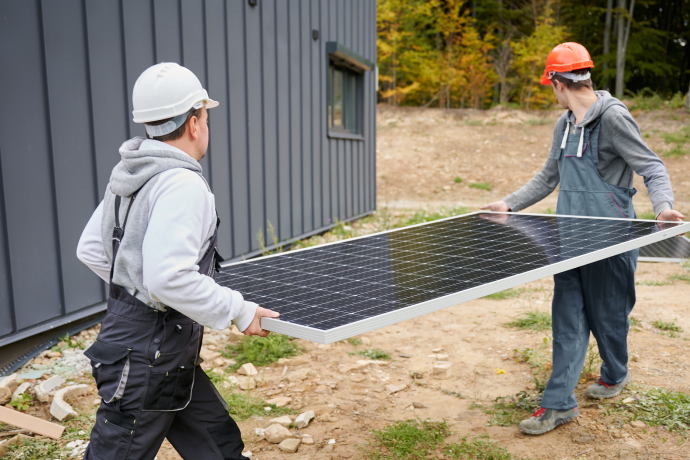“I work on-site all day, I’m only using my power at night. Why would I bother with solar?”
This is a common objection people have towards getting solar on their property, and whilst it’s a valid concern, the sustained benefits of having a solar system for people who are not home during the day is widely misunderstood.

Firstly, some small tweaks in power usage patterns can go a long way. Instead of waiting until the evening hours when the sun has almost gone down, turn on appliances such as the washing machine and dishwasher during the day. Refrigerators are a significant energy user in the majority of households, on average costing around $400 annually according to Energyis.com. Solar will lower these costs regardless of whether people are home or not. Most modern electrical appliances have a timer setting that allows you to select what time the machine will turn on, so you can ensure you are still using power when the house is vacant. It’s also wise to charge any devices such as Smartphones, tablets, laptops during the day as well.
Most solar systems are accompanied with a smart-phone app that allows users to measure hourly, daily and weekly production from their panels. You can check the app at any stage during the day or night, and instantly see up-to-date information on how much electricity your solar panels have produced that day or over a longer period. This helps users learn which periods of the day their household is getting the most energy from their panels, and therefore can cater their usage pattern accordingly.
Further, those fortunate enough to have pools at their home will know how expensive it is to charge pool pumps. According to Sustainability.vic, pool pumps can add up to 30% to your energy bill, costing $840 to run annually on average. The solution? Installing a solar-powered pump can significantly reduce the costs associated with powering the pool, and requires very little maintenance. You can even set a timer to turn your pool pump on during daylight hours, for example between 8am-4pm, to optimise the energy gleaned from the sun.
Whilst there are some clear advantages to being home all day and using power during daylight hours, it’s simply not achievable for many. However, with a few simple but important changes to how we use electricity, there are still significant savings to be made off power bills.






